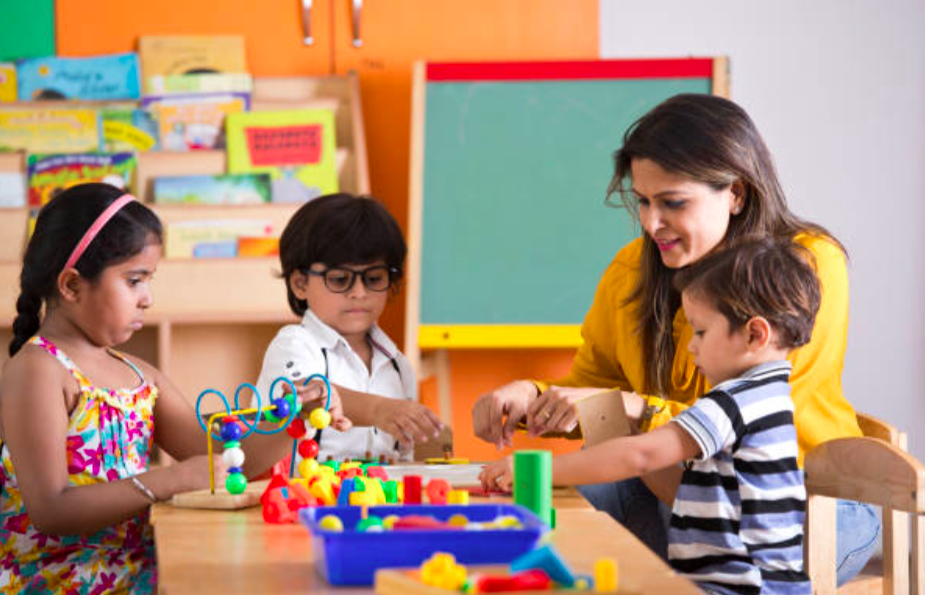Preparing the mindset for learning requires transfer of control from the hands of the teacher to that of the learner.
The need to facilitate

Ask some of these questions to a child in Middle or Senior School: Which is your favourite subject? Why do you like it?
Stretching the conversation, as you ask him to mention something very interesting in that subject worth sharing, the discussion is more than likely directed to veer towards some fact/ theory/ principle/ incident which his teacher had invariably discussed too well so as to leave a long-standing impression on the child’s mind. Now, if you are an adventurous questioner desiring to dig deeper and ask him what he plans to do with that subject in future, you would be turning him rather clueless; for all he has been learning for is marks and grades leading to a certificate. That is as much as the education system spearheaded by the ‘teacher’ brings him.
The education system, with ‘teaching’ as its most vital tool, has remained chained and unchanged over the last 200 years though everything else in the world has. Borrowing the words of Sir Ken Robinson , it has followed a ‘manufacturing’ model of education that is designed to produce university professors rather than a skilled population ready to face the world; implemented through teachers who have successfully lubricated this manufacturing process. What was necessary was an ‘organic’ model that would allow every unit of the system to flourish on its own intrinsic attributes that could optimise productivity and ensure that happiness flourishes in a sustainable ecosystem.
Clarity of the end-goal is critical for enabling this to happen. To be empowered with essential 21st Century work-life skills, learners need to possess certain key attributes. These include :
The 4 Cs: Communication, Critical thinking, Creativity, Collaboration.
4 additional Cs: Curiosity, Commitment. Compassion and awareness of Cultures.
The above Cs will wire the minds towards envisioning, effectively planning, strategising, innovating, correlating, building consensus,implementing solutions; thereby forming – rather, transforming learners into mindful and versatile problem solvers.
Creation of this mindset requires holistic participation at the learners’ end. It necessitates a transfer of control from the hands of the teacher to that of the learner. Pedagogy gives way to Heutagogy or self-determined learning, implemented in the spirit of Andragogy, where the learner identifies what he needs to learn with a sense of priority.
In such a classroom, what is required is to rouse the learner’s curiosity and help him connect the dots as he proceeds in his exploration. It is backward integrated: the learner is conscious of his end goal, i.e. she knows where she aspires to reach and works her way through; engaging herself in ingenious processes guided by her teacher, err. Facilitator.
The facilitator’s role , therefore, is to:
- Help learners identify the purpose behind doing an activity, or any academic pursuit.
- Help learners identify a connect with real-life through the activity
- Aid the learner with support mechanisms that will help him reach his cherished objective
- Create an environment of enthusiasm where mistakes do not demotivate learners, rather urge her to move on without the fear of failure.
- Make learners realize that the experience is as important as the end-goal: every mistake she makes, gives her the learning of one particular way in which her method does not work.
Though it might apparently seem, the role of a facilitator is by no means a peripheral one. To enable the facilitator to help the learner connect the strands in his learning experience, she requires a consummate and holistic understanding of the domain. But more importantly, she needs to connect it with other related disciplines to bring out their interrelatedness. Conducted with deep empathy, this will implant the seeds of integrated learning in the learners’ mind.
Education system will attain its desired objective when subjects in the curriculum are facilitated and not taught. Though it may seem a challenge initially, it is certainly attainable. Moreover, National Education Policy (NEP 2020) mandates that teachers need to be replaced with facilitators in a phased manner. International STEAM Research (ISR) promotes integration of learning disciplines through the facilitation mode’ in schools, apart from offering Training and Certification for facilitators. This is a process which makes learners wire their brains to enjoy all subjects in the self-determined mode. The facilitator’s role to implement the curricular subjects then gets that much easier. Implementation of Heutagogy at this stage converges the learners’ consummate positive energies towards a humanist and altruist outcome. There is increased productivity and greater harmony; happiness prevails.
